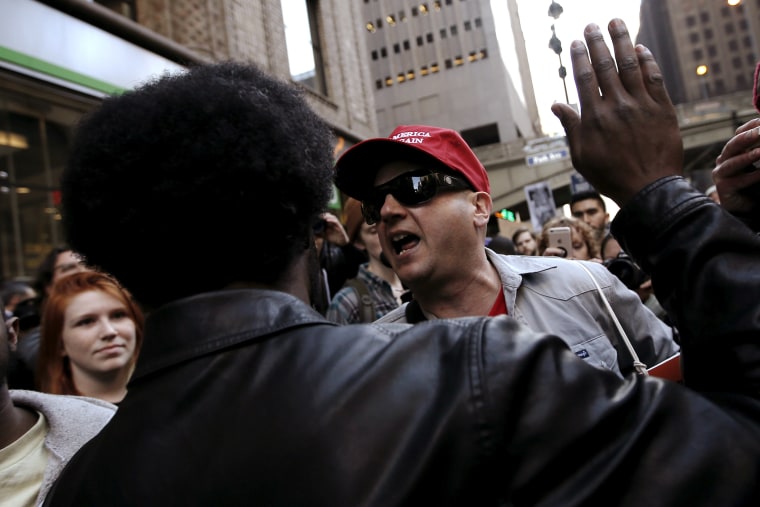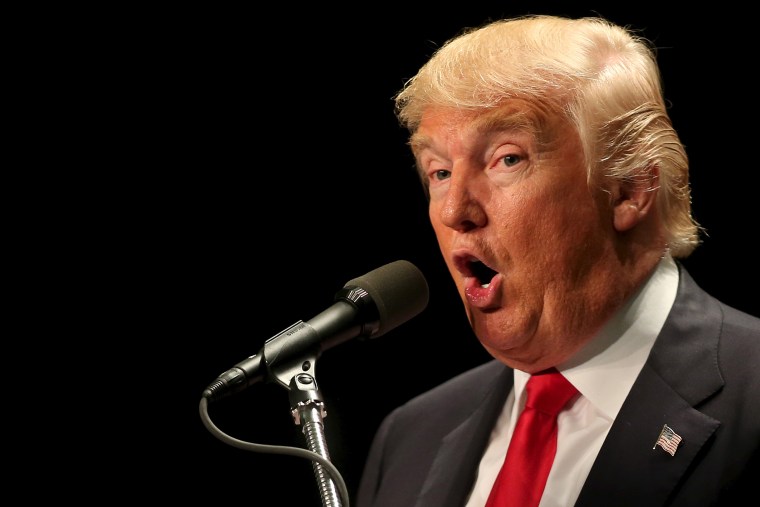If there’s one lesson that we can learn from this election season, it is that the days of coded and subtle racism are a trend of the past. Republican presidential front-runner Donald Trump’s candidacy in particular reveals that we are now in a time when presidential contenders and their supporters can openly voice anti-Muslim and anti-immigrant views at televised debates and rallies. We should rightfully pay attention to the national discourse in this political moment — but not at the expense of the backyard backlash spreading to cities around the country.
The national election climate has opened up the space for groups, legislators and individuals to scapegoat Muslim, Arab and South Asian communities. Immigrant rights advocates are warning that the current political discourse has spurred the introduction of anti-immigrant and anti-refugee bills in states like Georgia, Arizona and Wisconsin that range from making English the “official” language to denying local identification documents.
RELATED: Report: Children of color 'terrified' of Trump presidency
In March, the South Carolina Senate passed a bill that would create a state registry to track refugees and would make “sponsors” (including agencies) who assist with resettlement legally liable for crimes committed by refugees. And in Tennessee, a state with growing Kurdish and Somali refugee populations, a resolution that would enable the state to sue federal government over refugee resettlement is moving through the legislature.

The national political discourse generates an environment in which it is becoming more acceptable to not only hold but also freely express views that vilify Muslim, Arab, South Asian and Sikh communities. From airports to the streets to their own places of worship, community members are reporting increased incidences of violence and harassment.
Even a mundane act such as stopping for gas can be cause for concern, given the attack in March on Khondoker Usama – the Muslim student body vice president at Wichita State University – and his Latino friend by a man yelling, “Brown trash, go home. Trump will win.”
The obstructive efforts to prevent the construction of mosques continue as well, with the most recent example occurring in a New Jersey suburb. This past December, Bridgewater, New Jersey, denied an application to construct a mosque, despite 39 public hearings over a course of four years that forced the Islamic Center of Bridgewater to respond to complaints and demands of local residents. The Islamic Center filed a lawsuit in March.
While anti-Muslim and anti-immigrant backlash is not a new trend, it has increased since the election cycle began. It is important for political parties and officials to draw a clear line on the use of divisive rhetoric. This can include asking candidates to take pledges to refrain from using harmful narratives and holding each other accountable when doing so. We must also support local advocates who are holding the line against legislative efforts to stigmatize immigrants and refugees.
While all eyes are on the national environment in this moment, we cannot afford to ignore what might be happening in our own backyards.
Deepa Iyer is a senior fellow at the Center for Social Inclusion and the author of "We Too Sing America: South Asian, Arab, Muslim and Sikh Immigrants Shape Our Multiracial Future." She writes in a personal capacity for MSNBC.com.
